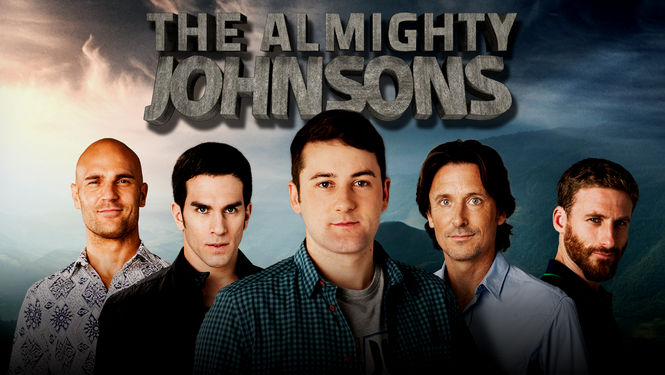I'm happy to have my friend Alan Orloff taking over my slot today. He's a great writer and a heck of a guy. Today he's talking about the benefits of writing a series. Welcome, Alan. And happy early Thanksgiving, everyone. I'll see you again in three weeks.
—Barb Goffman
Embarking on a Series by Alan Orloff
Thanks to Barb and the rest of the SleuthSayers for being such gracious blog hosts! I can’t wait for the guest blogger banquet! I hope that SANCTUARY MOTEL, my new suspense novel, is the first in a long, long series featuring Mess Hopkins (the do-gooder proprietor of a seen-better-days motel). But having a long-running series wasn’t always at the top of my writer wish list. The first five (or maybe six) manuscripts I ever wrote were all designed to be standalone novels. A self-contained story. A beginning, a middle, and an end, for the plots and for the characters. Where characters can be killed off, because you don’t *need* them to populate a future story. Now, my main characters can rest easy—their lives are protected. Even if something terrible happens to them, I’m pretty sure they’ll recover in time for the next adventure. Don’t get me wrong; I enjoy writing standalones. As a writer, you’re free to explore different milieus, using different voices, creating different characters. You have plenty of freedom to follow your whims, not constrained by choices you made seven books ago that may no longer suit your needs. But boy, isn’t there something comforting about revisiting old friends in familiar settings once a year? And because I’m very lazy, isn’t there something, uh, efficient, about not having to create an entire cast of characters and build a new world with every book? U betcha! So, after a string of standalones, I decided to embark on a series. Here are some (mostly pragmatic) things I considered as I mapped out my series: Premise I sought a premise that wasn’t too narrow—I wanted a basic set-up that could be used as a foundation on which to build stories. The idea for SANCTUARY MOTEL grew out of two thoughts. One, I saw a news report about a municipality converting abandoned motels and hotels into housing for the homeless (great idea!). I combined this with my love for quirky and run-down motels. (Trust me, I stayed in some doozies, back in the day! But that’s a different blog post.) Weirdly, there just happened to be a couple of independent motels fitting this description that already existed in the City of Fairfax. I modeled the physical characteristics of the fictional Fairfax Manor Inn by mashing up those two (in my head) and adding a few embellishments. Thus my idea was born and ready for further refinements. In the end, I think I succeeded. A motel that opens up its doors to those needing sanctuary (from a bad situation) gives me the foundational premise (and flexibility) I was looking for. Setting SANCTUARY MOTEL is set in the City of Fairfax, VA, an area I am quite familiar with. In many respects, it’s a typical big-city suburb (so many readers will identify with it), but my hometown knowledge can also take them on interesting side trips to places not widely known. (A quick aside: my only other “series” (two books, KILLER ROUTINE and DEADLY CAMPAIGN) was also set in Northern Virginia, and I even managed to include one of my favorite characters from those books (a bookie named Jimmy the Raisin) in my new series.) Cast of Characters I wanted to create a cast of characters that was varied enough to support many different storylines (most of which I haven’t even thought up yet!). In SANCTUARY MOTEL, I include the requisite sidekick, the requisite love interest, the requisite relatives (good and bad), the requisite work colleague, the requisite cop/old friend. But I also managed to introduce a host of other interesting folks: a wise street informant, the aforementioned Jimmy the Raisin, a vet who owns a nearby bagel place, a gruff security guy named Griff, a fortune-teller, and others. Some of these characters have relatively minor roles in this book, but they certainly might “come in handy” in future books. Character Growth In a novel, characters are supposed to grow or undergo some sort of transformative transformation (or something like that—I never took a formal creative writing class). But there’s more room for growth and character arcs over a number of books. While it might require a little more planning, I think it will ultimately prove more satisfying to see my characters grow meaningfully from book to book. I’m working on the second novel in the series now, and already I’ve thanked my past-self several times for having the foresight to set things up in a way that lends itself to my current story. Now, if I could just tell my past-self to make a few different life decisions (like invest in Apple decades ago), I’d be driving a nicer car! Okay, back to work. My series isn’t going to write itself. Isn’t that right, future-self? Alan Orloff has published ten novels and more than forty-five short stories. His work has won an Anthony, an Agatha, a Derringer, and two ITW Thriller Awards. His latest novel is SANCTUARY MOTEL, from Level Best Books. He loves cake and arugula, but not together. Never together. He lives and writes in South Florida, where the examples of hijinks are endless. www.alanorloff.comAbout SANCTUARY MOTEL Mess Hopkins, proprietor of the seen-better-days Fairfax Manor Inn, never met a person in need who couldn’t use a helping hand—his helping hand. So he’s thrown open the doors of the motel to the homeless, victims of abuse, or anyone else who could benefit from a comfy bed with clean sheets and a roof overhead. This rankles his parents and uncle, who technically still own the place and are more concerned with profits than philanthropy. When a mother and her teenage boy seek refuge from an abusive husband, Mess takes them in until they can get back on their feet. Shortly after arriving, the mom goes missing and some very bad people come sniffing around, searching for some money they claim belongs to them. Mess tries to pump the boy for helpful information, but he’s in full uncooperative teen mode—grunts, shrugs, and monosyllabic answers. From what he does learn, Mess can tell he’s not getting the straight scoop. It’s not long before the boy vanishes too. Abducted? Run away? Something worse? And who took the missing money? Mess, along with his friend Vell Jackson and local news reporter Lia Katsaros, take to the streets to locate the missing mother and son—and the elusive, abusive husband—before the kneecapping loansharks find them first.
































